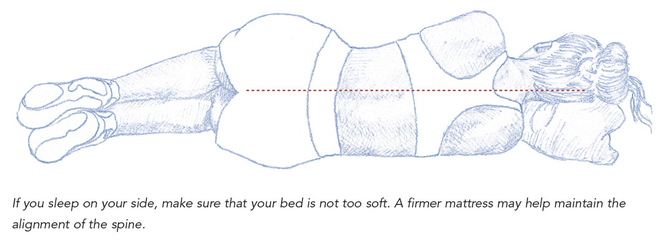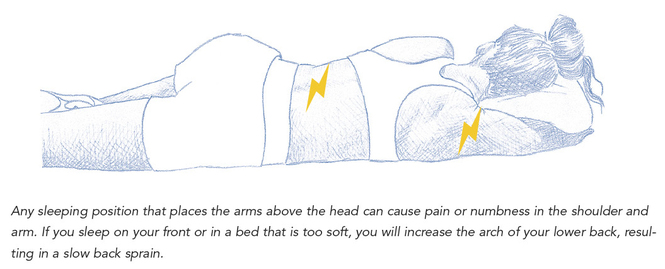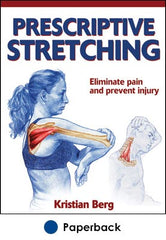Remedies to relieve morning aches and pains
This is an excerpt from Prescriptive Stretching by Kristian Berg.
Common Morning Aches and Pains
If it feels as if somebody has hit you over the head with a baseball bat, tried to break your back, or pinned your arm behind your back during the night, your sleeping posture is probably working against you. Changing your sleeping position is not easy. You established this habit when you were young and your muscles are not as flexible now as they were back then. The following section suggests some remedies for pain commonly felt when waking.
Do you wake up with a headache?
Waking up with a headache is far from the ideal way to start your day. Although you have been sleeping, you may not have been resting and relaxing. Grinding your teeth and clenching your jaw during sleep are typical symptoms of stress. This kind of nightly activity involves both the muscles in your jaw and the muscles in your neck. Have you noticed that you want to pull your shoulder up toward your ear as you prepare to fall asleep? This action does not necessarily stop after you fall asleep, which may lead to a morning headache.
Remedies
Stretching and relaxing the area around the neck are very good ways to avoid headaches.
Headaches can be caused by poor sleeping posture combined with shortened muscles. The firmness of your bed may also be a factor. Generally speaking, the heavier you are, the firmer your bed should be.
Do you wake up with a stiff neck?
If you wake up with a stiff neck that is hard to move, your pillow may be too tall. Sleeping on your side with a pillow that is too high stretches the muscles on one side of the neck and shortens the muscles on the other. This habit irritates the muscles and joints in the neck.
Remedies
Make sure that your head is aligned with your spine when you lie on your side. Adjust the height of your pillow as needed.

Are your arms asleep when you wake up?
Experiencing numbness or tingling when you wake up can be uncomfortable. The most common reason for this is falling asleep with your arms above your head. Sleeping on your back with your arms above your head stretches the pectoralis major and minor, causing them to push on the nerves and blood vessels that run from the neck and trunk into your arms, which then fall asleep.
Remedies
Completely change your sleeping position or try sleeping with your arms by your sides. Stretch the pectoralis major and minor every night before you go to bed.

Does your shoulder hurt when you wake up?
Morning pain in the shoulder can be caused by sleeping with your arm under the pillow and your elbow above your head. Sleeping in this position squeezes the supraspinatus, which creates a feeling of weakness in the arm.
Remedies
Try sleeping on your back or keeping your arm below the shoulder.
Does your lower back hurt when you wake up?
Sleeping on your front in a bed that is too soft commonly results in the feeling that your back is breaking in two.
This is because your midsection, which is your heaviest part of the body, sinks down into the bed, severely arching your back. This habit, combined with tight hip flexors, almost guarantees lower-back pain in the morning.
Remedies
Switch to a firmer bed or place a board under the mattress. Stretch your hip flexors before you go to bed. Try sleeping on your side instead.
Learn more about Prescriptive Stretching.
More Excerpts From Prescriptive Stretching

Get the latest insights with regular newsletters, plus periodic product information and special insider offers.
JOIN NOW


